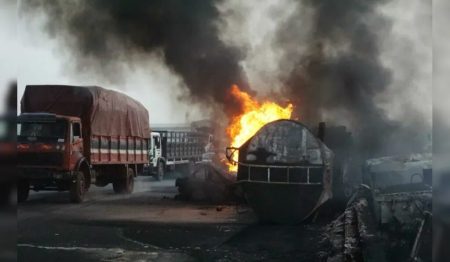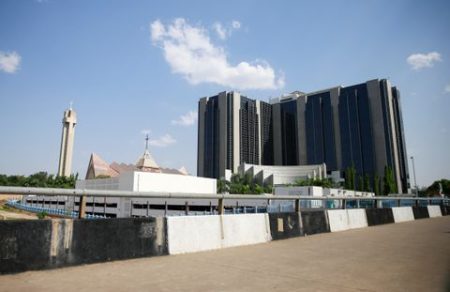 27 March 2017, Sweetcrude, Port Harcourt — The Niger Delta region of Nigeria is a sprawling mass of expensive real estate that is held together like a cusp by the Atlantic at its Southern fringes. From an aerial view the Niger Delta is a tuft of wild forests, thick green vegetation, beds of rubber, banana and oil palm plantations, ridges of cassava, pineapple and maize, rows upon rows of fruit bearing plants indigenous and peculiar to the Niger Delta, all watered and enriched by the River Niger in the North and by the Nun River, the Forcados River, the Bonny River and the Imo River, themselves hungry tidal tributaries of the Atlantic sea. The avian, aquatic and animal populations are diverse, colourful and as wild as the prairies of our delta. I was born in Bolo on a sunny Wednesday; Bolo is an Ijaw community on the Atlantic coast and within the geography of the Niger Delta region of Nigeria. Like our neighbours, the Itsekiri, the Urhobo, the Efik/Ibibio, the Ogoni, the Igbo and the Bini, the Ijaw inherited a very rich culture which was developed around our rich and wildly beautiful environment, our emigrational sojourns and hundreds of years of internal and external social interactions forming into traditional sediments.
27 March 2017, Sweetcrude, Port Harcourt — The Niger Delta region of Nigeria is a sprawling mass of expensive real estate that is held together like a cusp by the Atlantic at its Southern fringes. From an aerial view the Niger Delta is a tuft of wild forests, thick green vegetation, beds of rubber, banana and oil palm plantations, ridges of cassava, pineapple and maize, rows upon rows of fruit bearing plants indigenous and peculiar to the Niger Delta, all watered and enriched by the River Niger in the North and by the Nun River, the Forcados River, the Bonny River and the Imo River, themselves hungry tidal tributaries of the Atlantic sea. The avian, aquatic and animal populations are diverse, colourful and as wild as the prairies of our delta. I was born in Bolo on a sunny Wednesday; Bolo is an Ijaw community on the Atlantic coast and within the geography of the Niger Delta region of Nigeria. Like our neighbours, the Itsekiri, the Urhobo, the Efik/Ibibio, the Ogoni, the Igbo and the Bini, the Ijaw inherited a very rich culture which was developed around our rich and wildly beautiful environment, our emigrational sojourns and hundreds of years of internal and external social interactions forming into traditional sediments.
Several years ago the Nigerian government and her partners fell upon the Niger Delta region exploring for hydrocarbons, digging, excavating, drilling[BJ1] [BJ2] and deforesting. These operations impacted on the Niger Delta in various ways. As a boy holidaying in Bolo, I would go down to Mission Poku (Waterfront) with the lads and play within the shallow waters. I could see the gleaming white sand of the river bed, the small fish that swam within the shores and watch with fascination as the blue-green waters of the river blended with my caramel skin to produce a lovely tone of brown much like the colour of my grandmother’s pewter jugs. Those days are far gone. Our homeland has been the subject of damning environmental reports, become polluted with oil and gas activities and in consequence, is fast becoming a theatre of crime and disorder. But as ironies go, some of these have formed the factors for the investment opportunities that are now abundant in the Niger Delta.
For starters the oil and gas giant, Shell, has by official mandate invested billions of dollars towards the cleaning and regeneration of the environment of the Niger Delta. So far, only community activists and local pretenders are strutting around the billions. The Niger Delta needs real expertise and cleaning companies with undoubted pedigree. The Oil and Gas industry has made the Niger Delta a veritable economic frontier, attracting genuine investors, opportunists and thieves. There are also the engineers, the financiers, the banks and the middlemen. The “Crude Rush” is responsible, according to demographic reports for the tripling of the populations of the cities of Warri, Port Harcourt, Uyo, Aba, Owerri and Calabar from just ten years ago. The consequence of this is a perpetual rise in the value of real estate. From three functional serviced estates of at least three hundred housing units each including the Shell Residential Area of Port Harcourt, the city now boasts about twenty more with no vacant apartments. Beautiful hotels dot the landscape of the Niger Delta but few are five star affairs and every upwardly mobile population requires in its backdoor, functional holiday and working resorts for a quick getaway. These are gaping holes in the real estate sector of the Niger Delta.
Another irony that makes the Niger Delta an investment haven is the scarcity of petroleum products! It is now a famous joke that Nigeria, an oil producing country, imports refined products as its government owned refineries produce far less than is required for internal consumption. Recently, the federal government proposed the setting up of modular refineries in the Niger Delta to boost local production but the thinking in business circles is that the proposed modular refineries will suffer the lot of the existing refineries so long as government equity and supervision are involved. Power, a related industry is in dire need of fresh injection of funds. Power shortages have undermined industrial activity especially in the face of soaring oil prices influenced more by poor supply ratios than the actual cost of energy worldwide. The good news is that private equity, is by legislation, qualified to play in oil and gas, energy and power and virtually all the sectors of the Nigerian economy. In-house production of oil equipment, drilling fluids and chemicals and the wide array of materials needed for the production of crude oil and gas would save foreign exchange and boost the productive base of the Nigerian economy.
It is estimated that there are at least four hundred tracts of coastal acres around the Niger Delta that can be developed into Sea Ports, Quays, Bays and other related facilities. From the shores of Ondo to Calabar, the Southern reaches of the Niger form a concave extrusion into the waters of the Atlantic with as many business possibilities as prudent assay and survey can present. A few years ago, a federal agency proposed an industrial park, a self-sufficient city-like park, fully equipped with modern cranes, industrial conveyors and the fare of modern equipment serving the needs of Oil and Gas companies, Oil Equipment Manufacturing Companies and the range of allied and feeder sub-sector operators all clustered together for all the range of benefits accruable to such an arrangement.
Security is fast becoming an issue in the Niger Delta but while some dwell on the doom and gloom others see a silver lining in the negative development. The rising tide of insecurity in the Niger Delta should be a challenge for manufacturers and operators of advanced security technology. Deploying man hours in the security of oil and gas pipelines is now quaint. In the city of London, one close circuit television camera can monitor eleven persons. The Niger Delta needs that kind of security now. As investors ply their funds on the many investment opportunities in the Niger Delta, they would be amenable to playing contributory roles in the security of the environment to secure their lives, lifestyles and investments. It is estimated that a market share of over $USD200Billion awaits fresh investors to the Niger Delta’s security needs. The people of the Niger Delta are fun loving people who love good food, to eat and to be seen in their best plumes. In response to demographic surveys conducted by America’s clothing industry, many brands are now sold in malls across the country, mostly in the Niger Delta where the Petrodollars reign supreme. Again Chinese, American, British and Jamaican diners are making huge turnovers because of the tasteful lifestyles and culinary needs of the eclectic population of the Niger Delta. Night spots, disco houses and leisure lounges which are ordinarily in hot demand in the Niger Delta, are losing business to security concerns. The security of the Niger Delta is therefore a priority for the midwifery of a robust investment folio on the most feasible business and investment potential in sub-Saharan Africa.



